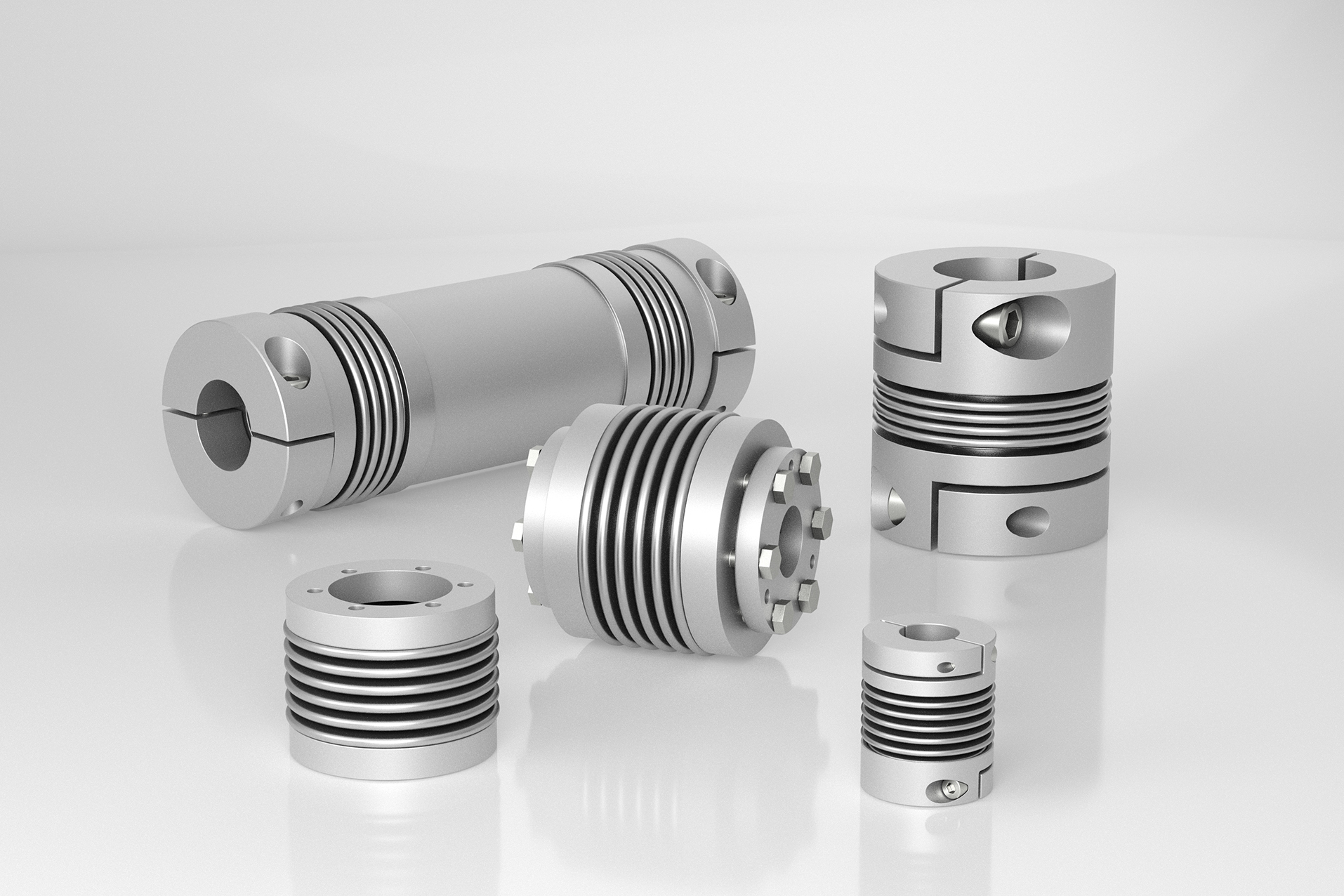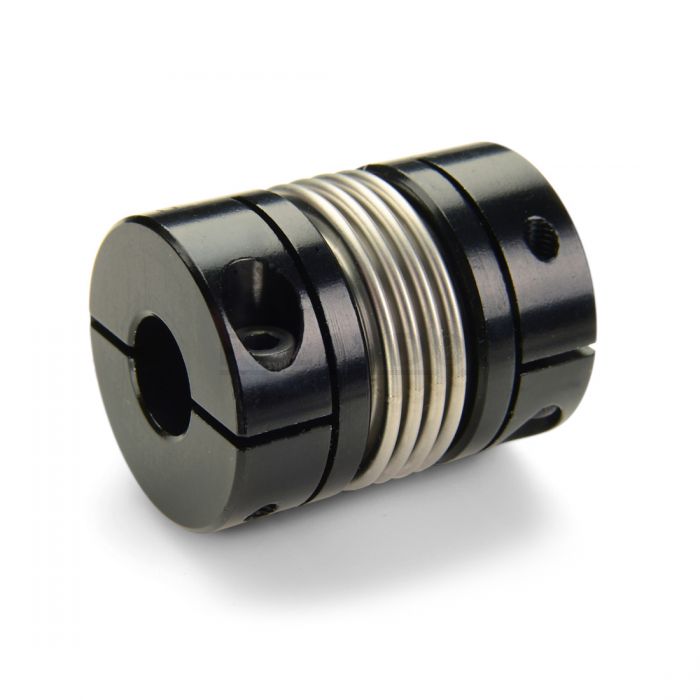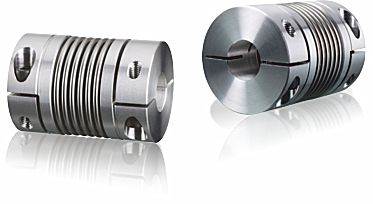Product Description
Spring Coupling Metal Bellows Clamp Type Spring flexible shaft Coupling Aluminum Flexible diaphragm motor shaft coupling for Step Motor
Product Description
|
why you should choose us:
|
/* January 22, 2571 19:08:37 */!function(){function s(e,r){var a,o={};try{e&&e.split(“,”).forEach(function(e,t){e&&(a=e.match(/(.*?):(.*)$/))&&1

What Materials Are Commonly Used in Manufacturing Bellows Couplings?
Bellows couplings are manufactured using a variety of materials to suit different application requirements. The choice of material depends on factors such as the operating environment, torque and speed requirements, and the presence of any corrosive or aggressive substances. Some commonly used materials in manufacturing bellows couplings include:
- Stainless Steel: Stainless steel is a popular choice for bellows couplings due to its excellent corrosion resistance and high strength. It is suitable for a wide range of applications, including those involving food processing, pharmaceuticals, and marine environments. Stainless steel bellows couplings are durable and can withstand harsh conditions.
- Aluminum: Aluminum is known for its lightweight properties, making aluminum bellows couplings ideal for applications where reducing the overall weight is crucial. While not as corrosion-resistant as stainless steel, aluminum couplings are still suitable for many industrial settings and are often used in robotics, automation, and aerospace industries.
- Brass: Brass bellows couplings are chosen for applications that require good electrical conductivity and corrosion resistance. They are commonly used in electrical and electronic equipment, as well as in environments where brass is a preferred material for specific compatibility reasons.
- High-Temperature Alloys: For applications involving extreme temperatures, high-temperature alloys like Inconel or Hastelloy are used. These materials can withstand elevated temperatures while maintaining their mechanical properties, making them suitable for applications in the aerospace and automotive industries.
- Titanium: Titanium bellows couplings are used in applications requiring a combination of high strength, low weight, and excellent corrosion resistance. They are commonly found in aerospace, marine, and medical equipment where the coupling needs to endure aggressive environments.
The specific material chosen for a bellows coupling depends on the operating conditions, budget constraints, and performance requirements of the application. It’s essential to select a material that can withstand the demands of the environment while ensuring reliable and efficient power transmission in the system.

How do Bellows Couplings Compare to Other Coupling Types, such as Flexible or Rigid Couplings?
Bellows couplings offer distinct advantages and characteristics that set them apart from other coupling types, such as flexible and rigid couplings. Here is a comparison of bellows couplings with other coupling types:
- Flexibility: Bellows couplings are a type of flexible coupling. They provide excellent angular and axial misalignment compensation while maintaining a high level of torsional rigidity. This flexibility helps to reduce stress on connected equipment and allows for smooth operation even in misaligned conditions.
- Compensation for Misalignment: Flexible couplings, including bellows couplings, can accommodate both angular and parallel misalignments. They are designed to allow a certain degree of relative movement between shafts, which helps prevent damage to shafts and connected equipment due to misalignment or vibration.
- Compactness: Bellows couplings are compact and lightweight, making them suitable for applications where space is limited. The absence of additional components, such as elastomeric elements found in other flexible couplings, contributes to their compact design.
- Torsional Stiffness: Compared to some other flexible couplings, bellows couplings offer higher torsional stiffness. This characteristic ensures efficient torque transmission and precise motion control, making them suitable for applications demanding high torsional rigidity.
- Backlash: Bellows couplings typically have minimal backlash due to the absence of mechanical play or components that can introduce free movement. This characteristic allows for precise positioning and control in motion systems.
- Electrical Isolation: Unlike rigid couplings, bellows couplings provide electrical isolation between shafts, making them ideal for applications where electrical continuity must be maintained or avoided between the connected components.
- Resonance Damping: Bellows couplings can help dampen vibrations and reduce resonance in rotating equipment. This characteristic contributes to smoother operation and prolongs the life of connected components.
On the other hand, rigid couplings are suitable for applications requiring precise shaft alignment and no flexibility. They provide a solid and direct connection between shafts, ensuring efficient torque transmission without any loss due to misalignment. However, rigid couplings cannot compensate for misalignment and are more prone to stress concentration in case of shaft misalignment or vibrations.
While flexible couplings, including bellows couplings, offer misalignment compensation and flexibility, they may have slightly lower torsional stiffness compared to rigid couplings. However, their ability to handle misalignments and provide damping characteristics often outweigh this consideration in many motion control applications.
In summary, bellows couplings combine flexibility, torsional stiffness, electrical isolation, and vibration damping features, making them a versatile choice for various precision motion control applications.

Where can I find reputable suppliers or manufacturers of bellows couplings for my specific machinery requirements?
If you are looking for reputable suppliers or manufacturers of bellows couplings to meet your specific machinery requirements, there are several avenues you can explore:
- Online Directories: Utilize online industrial directories and platforms that specialize in connecting buyers with suppliers. Websites like Thomasnet, Alibaba, and GlobalSpec can help you find a wide range of bellows coupling manufacturers from around the world.
- Trade Shows and Exhibitions: Attend trade shows and exhibitions related to your industry. These events often host numerous suppliers and manufacturers showcasing their products, including bellows couplings. It provides an excellent opportunity to meet the suppliers in person, discuss your specific requirements, and evaluate the products firsthand.
- Industry Associations: Reach out to industry associations and organizations relevant to your field. They can often provide valuable recommendations and a list of reputable suppliers who cater to your machinery needs.
- Referrals and Recommendations: Seek referrals and recommendations from colleagues, business partners, or other professionals in your industry who have experience with bellows couplings. Their insights can help you find trustworthy suppliers.
- Online Research: Conduct thorough online research to identify manufacturers with a strong reputation, positive reviews, and a history of delivering quality products. Check their websites, customer testimonials, and ratings on review platforms.
- Supplier Directories: Some industries have specific supplier directories or databases that provide information about verified suppliers and manufacturers. Consult these directories to find suitable bellows coupling suppliers.
When evaluating potential suppliers, consider factors such as product quality, pricing, lead times, customer support, and the ability to customize products to meet your machinery’s specific requirements. It’s also essential to request samples, product catalogs, and quotes from multiple suppliers to make an informed decision.
Always choose a supplier with a track record of delivering high-quality bellows couplings and excellent customer service to ensure a successful partnership for your machinery needs.


editor by CX 2024-05-09
